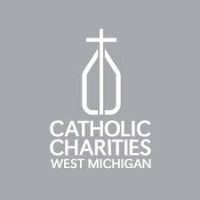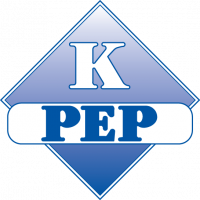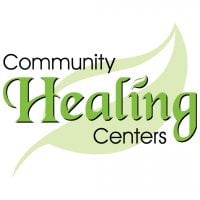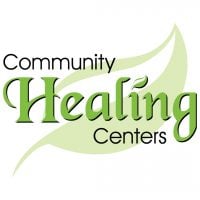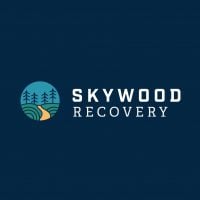Catholic Charities West Michigan
Drug Rehab Center in Kalamazoo, Michigan
Catholic Charities West Michigan is a non-profit organization that provides holistic, evidence-based substance abuse and addiction services, including assessment, counseling, housing, job readiness, and ongoing care planning, as well as 24/7 peer-based support and community resource connection.
About Catholic Charities West Michigan in Michigan
Catholic Charities West Michigan is a non-profit organization that provides substance abuse and addiction services in Kalamazoo, Michigan. Their mission is to enhance the physical, mental, and spiritual well-being of individuals and families in need through advocacy, education, and service. They offer a variety of services, from substance use disorder assessment and treatment planning to education and individual, family and group substance abuse counseling. Additionally, they offer housing, transportation, job readiness and skill building services, life skills classes, and nutritional counseling.
Catholic Charities West Michigan provides holistic, evidence-based services for substance abuse and addiction. They offer an array of services, including individualized assessment and individual and group counseling. Their counseling is focused on relapse prevention, anger management, positive life skills, and other topics related to substance abuse treatment. Through the service of recovery coaches, they offer 24/7 peer-based support and resources to the people they serve. They also strive to connect those they serve with community resources and provide continuing care planning services.
Catholic Charities West Michigan is fully licensed and accredited by the Michigan Department of Health and Human Services and is certified by the Substance Abuse and Mental Health Services Administration (SAMHSA). They are also a member of Michigan's Alcohol, Drug, and Mental Health (ADAMH) System and the Strive Network. Additionally, Catholic Charities West Michigan is the only SAMHSA 5 Star Evidence-Based Treatment Center in the Kalamazoo area.
Genders
Ages
Modality
Additional
Conditions and Issues Treated
Opioid addiction has become a significant health problem in the United States. When a person’s life becomes unmanageable because of an opioid addiction, treatment can help them get sober. Treatment includes medical care and counseling.
“With so many people struggling with opioid addiction, we need more care and attention for those who want to quit. Opioid addicts often take opioids when they experience a painful injury – that’s how the cycle starts! When someone begins taking their medication differently than prescribed or takes an excessive amount of drugs, it means they’re hooked on drugs and in danger of overdosing.
The most successful way to beat this is through detoxing from these types treatments at Catholic Charities West Michigan in . Most facilities start by using medical support during the process while providing counseling services; rehabilitation comes later on after treatment has been completed successfully.
A “dual diagnosis” is when the individual has two medical issues at the same time. The top co-occurring mental disorders with addiction are depression, anxiety, ADHD, bi-polar disorder. Addiction is also considered a mental illness that is not a choice but rather a medical condition. Addiction can be caused by any number of underlying issues.
Dual diagnosis is provided by Catholic Charities West Michigan to treat addictive tendencies as well as any untreated mental illnesses. This ensures successful long term health and recovery for patients after treatment has been completed.
Dual diagnosis is provided by Catholic Charities West Michigan to treat addictive tendencies as well as any untreated mental illnesses for people in Michigan. This ensures successful long term health and recovery for patients after treatment has been completed.Levels of Care Offered
This center offers a variety of custom treatment tailored to individual recovery. Currently available are Aftercare Support, Drug Rehab, Dual-Diagnosis, Intervention, Outpatient, Residential, with additional therapies available as listed below.
Outpatient programs at Catholic Charities West Michigan, the Kalamazoo resident can live with their family while continuing with their job or studies. Treatment includes educating the patient on drug abuse, medications, and counseling sessions at the individual or group level. Outpatient treatment plans cover diagnosis, detoxification, management, and counseling. They are a popular option for those who have graduated from inpatient facilities.
Residential treatment programs are those that offer housing and meals in addition to substance abuse treatment. Rehab facilities that offer residential treatment allow patients to focus solely on recovery, in an environment totally separate from their lives. Some rehab centers specialize in short-term residential treatment (a few days to a week or two), while others solely provide treatment on a long-term basis (several weeks to months). Some offer both, and tailor treatment to the patient’s individual requirements.
Interventionism is a technique used to help an addict get clean and sober. The process begins with the addict’s family, friends, and co-workers gathering together to confront the addict about their addiction. This often happens when the addict is in the middle of a particularly bad bout of drug abuse.
The addict’s friends and family members are encouraged to share their feelings about the addict’s behavior with them, as well as what it’s doing to the addict and their loved ones. At first, the addict is typically resistant to this form of treatment because they feel it’s an intrusion on their private life. They may be upset or even angry at the interventionist for orchestrating this meeting. Over time, though, most addicts come to understand that their loved ones are only trying to help them.
During the intervention, the addict’s family and friends are encouraged to tell the addict how their drug use has affected their lives. The interventionist is there to help everyone organize their thoughts and communicate their message. They also help to ensure that the conversation doesn’t become aggressive or combative, which could put the addict on the defensive and make them reject the intervention.
This kind of treatment aims to get the addict in touch with their feelings about their addiction. They are encouraged to speak honestly about their drug use, as well as how it’s making them feel. They’re also asked to consider the consequences of their drug use and how it’s hurting their loved ones. The addict is allowed to see how their addiction has become a problem for everyone around them.
Without aftercare support, addicts can easily relapse back into addiction. It is crucial to integrate the addict back into society. Aftercare support should take place after outpatient treatment has ended.
There are a few different types of aftercare support that patients can seek after completing an inpatient treatment program:
- 12 Step Self-help groups (AA, NA)
- Therapeutic communities,
- Long-term, structured sober living arrangements
- Halfway houses (residential treatment centers)
Many different support groups exist for addicts to seek help after treatment. Some are more effective than others, depending on the person’s addiction, background, and other factors.
Therapies & Programs
Individual therapy is a form of counseling where you meet with a trained professional one-on-one. Meeting with a therapist in this setting allows for a personal and trusting relationship to be built. This allows the patient to open up about sensitive or private issues they may not feel comfortable discussing in a group. Individual therapy helps identify the root causes of your addiction, which can help prevent relapse.
Couples therapy for drug addiction is a unique form of therapy that allows family members to work through the emotional issues of their loved one’s addiction together. Family members can support each other while learning how to cope with the addiction and encourage healthy changes. The two will work with a therapist to learn how the addiction affects themselves and the relationship.
Family therapy is often done alongside drug treatment to help addicts stay sober. The goal of family therapy for drug addiction is to create an environment where communication can happen without judgment, hostility, or blame. The therapist will sit with the family so they can learn how to communicate differently and provide new tools for dealing with emotions so that people don’t want to drink or do drugs. It’s important for families to focus on relapse prevention plans during treatment so that if the addict feels like they want to use again, they’ll know what steps they need to take together to prevent it from happening again in the future.
Group therapy sessions are another common addiction recovery service. These group sessions typically involve six to 12 addicts who meet regularly with a trained professional for support and guidance.
During these sessions, the group shares their experiences with one another and provides feedback that can help each member avoid relapse or overcome specific obstacles they are facing in their recovery process. With this type of support and guidance, addicts can feel like they are part of a community that understands their struggles and will help them get through the hard times.
Many people struggling with drug addiction have experienced some form of trauma in their lives. It is crucial that these individuals seek out professional help; otherwise, their drug abuse and addiction will likely continue.
Therapists and counselors at drug treatment centers employ several treatment programs to help people struggling with drug addiction, including trauma therapy. Trauma therapy helps people dealing with addiction by allowing them to confront the traumas of their past and move past them.
It is important to note that trauma therapy should not be confused with PTSD (post-traumatic stress disorder). Rather, it is used to treat the effects of trauma, which are often at the root of addiction.
Cognitive Behavioral Therapy (CBT) focuses on the underlying thoughts and behaviors that caused the problem of addiction in the first place and may cause a relapse. Negative feelings are common in drug abuse disorders, but they can lead to co-occurring disorders if not recognized. CBT involves strategies that help to change the behavior pattern by restructuring negative thoughts into positive ones. It helps to remove these feelings, and it provides long-term benefits. Also, CBT promotes self-awareness and self-control. It can be administered as a monotherapy or as part of combination therapy.
CBT can improve the patient’s mood, reduce drug cravings and boost success rates on treatment plans. Regular practice can help individuals handle negative attitudes, thoughts, and feelings without turning to drugs or alcohol. The core belief of Cognitive Behavioral Therapy (CBT) is that one’s moods, behaviors, and actions are all connected. Individuals can improve their quality of life using CBT. It helps addicts understand the patterns of thought and feelings that cause them to use drugs or alcohol and develop a healthy response.
Payment Options Accepted
For specific insurance or payment methods please contact us.
Is your insurance accepted?
Ask an expert, call (888) 674-0062
Catholic Charities West Michigan Associated Centers
Discover treatment facilities under the same provider.
- Catholic Charities West Michigan - Traverse City in Traverse City, MI
- Catholic Charities West Michigan - God's Kitchen in Grand Rapids, MI
- Catholic Charities West Michigan - Muskegon in Muskegon, MI
- Catholic Charities West Michigan - Big Rapids in Big Rapids, MI
- Catholic Charities West Michigan - Grand Rapids in Grand Rapids, MI
Learn More About Catholic Charities West Michigan Centers
Additional Details
Specifics, location, and helpful extra information.
Kalamazoo, Michigan 49008 Phone Number(269) 381-1234 Meta DetailsUpdated November 25, 2023
Staff Verified
Catholic Charities West Michigan Patient Reviews
There are no reviews yet. Be the first one to write one.
Kalamazoo, Michigan Addiction Information
Michigan has the second-highest rate of drug and alcohol abuse in the nation. Heroin is linked to more than 50% of the state's hepatitis C cases. Marijuana is the drug most often associated with crimes in Michigan, followed by methamphetamines. Opioids alone are responsible for almost 20% of all drug overdose deaths in Michigan.
Kalamazoo, Michigan has a serious drug addiction and abuse problem. In 2016, there were 120 drug overdose deaths in Kalamazoo County - a rate of 18.6 per 100,000 people. The most commonly abused drugs are marijuana, heroin, and prescription opioids. Families are affected, with many children being left without parents due to addiction. In Kalamazoo, MI, there are a variety of treatment facilities that offer different types of care.
Treatment in Nearby Cities
- Dearborn Heights, MI (118.5 mi.)
- Saint Ignace, MI (252.5 mi.)
- Fraser, MI (136.0 mi.)
- Harper Woods, MI (136.6 mi.)
- Lincoln, MI (199.1 mi.)
Centers near Catholic Charities West Michigan
The facility name, logo and brand are the property and registered trademarks of Catholic Charities West Michigan, and are being used for identification and informational purposes only. Use of these names, logos and brands shall not imply endorsement. RehabNow.org is not affiliated with or sponsored by Catholic Charities West Michigan.
